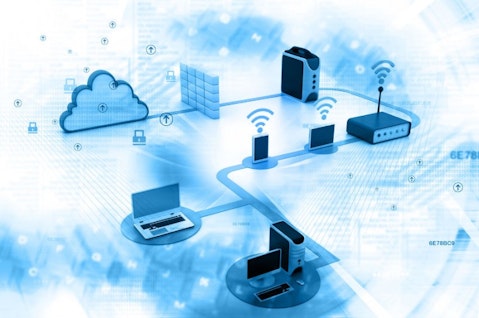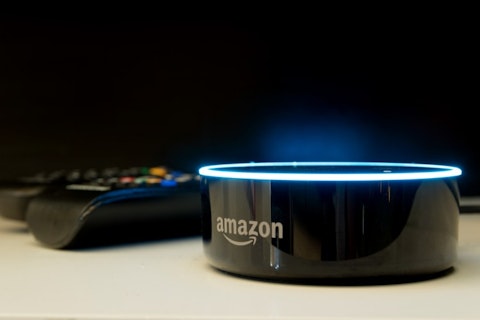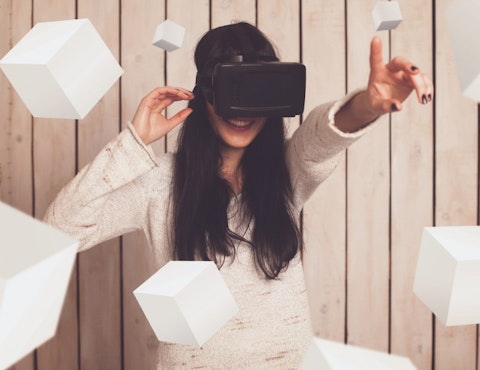The world around us is changing at an ever-growing pace, with more and more new technologies being launched every year, so we wanted to see which were the technologies of the future 2020.
Innovation comes from all corners of the world, although there are Countries that Have Invented the Most Things in All Human History, so it’s plausible to say that these futuristic technologies come from pretty much the same areas.

Copyright: niserin / 123RF Stock Photo
So, what kind of technologies are we looking for? Well, we’re looking at the things that are already here, but have yet to reach their fullest potential, things that can still grow and evolve into the kind of technologies that power up the entire world. These are technologies that we all use, that we’ve come to love and appreciate, and which will continue to grow and evolve until they reach a point where they become essential to the world around us.
For this list, we took at look at Gartner and its predictions regarding the years to come. Without further ado, here are the technologies of the future 2020.
10. Improved security architecture
If you’ve read the tech news pages in the past few months, we’re sure you must have noticed all the security breaches Internet of Things (IoT) devices encounter. Most of these problems stem from the faulty security of these devices, as manufacturers seem to completely ignore the fact that they connect to the Internet, so they are instantly vulnerable to attacks.
The situation has become extremely bad in recent years, with IoT devices becoming infected by various trojans with the purpose of making them a part of botnets to boost the power of the next Distributed Denial of Service attack. One white hat hacker went as far as to write his own efficient trojan with the sole purpose of shutting down the open doors which made those same devices vulnerable in the first place.
Security specialists are almost certain that the day the government imposes rules regarding IoT security are fast-approaching and that the industry will need to come up with some guidelines to better secure these devices.

Copyright: andreykuzmin / 123RF Stock Photo
9. Digital Technology Platforms
Avoiding the Internet as a business will soon become impossible unless you want to build anything beyond a corner store. Digital technology platforms that rank 9th on the list of technologies of the future 2020, are what all businesses will be based on when building their digital presence. Gartner identifies five different digital technology platforms: information systems, customer experience, analytics and intelligence, the Internet of Things and business ecosystems.

Copyright: hywards / 123RF Stock Photo
8. Mesh App and Service Architecture
The mesh is a reference to the dynamic connection between people, processes, services and things supporting intelligent digital ecosystems.
The mesh app and service architecture (MASA) is a multichannel solution architecture that mixes in cloud and serverless computing, as well as microservices and APIs and events. The result is a flexible and dynamic solution.
This, however, is a long-term process that will take a lot of work before solutions are developed to support multiple users in multiple roles, using multiple devices over multiple networks. There’s a lot of “multiples” here that need to be taken into consideration.

Copyright: kentoh / 123RF Stock Photo
7. Conversational Systems
Currently, there are plenty of conversational systems out there, systems set in place that will give you answers to your most dire questions about the weather for the day, which take the form of personal assistants, like Google Home, Alexa, Siri or Cortana.
The largest shift we’re going to see in the years to come, however, is the fact that these systems will become a lot smarter, a lot better at keeping up a conversation like humans do. They won’t just respond to your questions, they’ll predict communicational patterns, use additional sensors and generally communicate with you in more than one way. You might even expect this out of your appliances, or your IoT systems.
In the rapidly-changing world around us, it really shouldn’t surprise us too much when we’ll be keeping conversations with our computers.

Zapp2Photo/Shutterstock.com
6. Blockchain
Blockchain technology, the next on the list of technologies of the future 2020, has been around for a while and it’s the backbone of cryptocurrencies, such as Bitcoin. On a larger scale, blockchain is a type of distributed ledger. In it, transactions and sequentially grouped into blocks. While they’ve been used predominantly for cryptocurrencies up until now, more and more industries are taking into consideration adopting the model. The music industry, for instance, believes this might be a solution that would add more transparency to the business while reducing business friction, thanks to the transparency of the information in the chain.

vonDUCK/Shutterstock.com
5. Digital Twin
For the past 15 years or so, companies around the world have been working with digital twins to test out various devices. A digital twin is created on a computer after the targeted device – such as an airplane engine – is analyzed in depth with the help of countless sensors. Then, the parent company can test how that engine would react in a given simulated situation.
There are already billions of digital twins in the world and the number will only continue to grow over the years as companies choose this method to secure their work, testing countless scenarios in the process, while also saving money. In fact, there’s an industry-wide expectancy that soon testing will only be done via the virtual side of the digital twins, making this one of the amazing 10 technologies of the future 2020.

Joseph M. Arseneau/Shutterstock.com
4. Virtual and Augmented Reality
In the past several years, there’s been a massive rise of VR and AR, namely virtual reality and augmented reality the next technologies of the future 2020 in line on our list. These technologies are already transforming the way individuals interact with each other. More and more uses are being found for these technologies.
For instance, VR can be used to train military men, or to educate people about past times, be it eras when dinosaurs roamed the Earth, or when famous castles were under siege.
AR, for its part, can be used to teach people how to look for more than meets the eye in various exercises, especially since it mixes the real and virtual worlds.
With AR and VR headsets becoming more wearable as time goes on, there will be more uses to the technologies. For instance, businesses will be able to allow clients to immerse themselves in their surroundings. The technologies may even end up involving other human senses.

Bairachnyi Dmitry/Shutterstock.com
3. Intelligent Things
The world around us is growing with intelligent devices. Sure, there are plenty of things that are nice to be “smart” like your watch, or your home security cameras, or your thermostat even, but there are others that have been developed as such simply out of the desire to do so, not because there was an actual need.
In the coming years, there will be more and more Internet of Things devices out there, some that will become more intelligent than we think possible. They will learn everything about us, and our habits, only to try to make our lives easier. This, of course, is a rather touchy subject since it means relinquishing the sense of privacy as we see it traditionally and embracing a new concept that implies trusting our devices with our information.
Here lies the problem, for now. IoT security is notoriously bad – devices are being hacked left and right, infected with trojans that then turn the device into a pawn in a botnet planning out a brand new distributed denial-of-service attack (DDoS) on an unsuspecting target. The situation has become quite dire and it is believed the government will intervene sooner rather than later to force the IoT industry into setting down security guidelines to better protect the devices and their owners.

Zapp2Photo/Shutterstock.com
2. Intelligent Apps
The strive to surround ourselves with smart apps, devices, and gadgets will only continue as the years go by. We already have digital assistants that can be extremely helpful if trusted.
Artificial Intelligence, however, will be a part of a wider range of apps, going beyond the assistants we enjoy. In fact, Gartner predicts that technology providers will use AI to focus on three areas – advanced analytics, AI-powered and increasingly autonomous business processes, and AI-powered immersive, conversational and continuous interfaces. In fact, it will be way before 2020 that the world’s largest 200 companies will exploit intelligent apps and what they can offer. Now, let’s see the number one on our list of technologies of the future 2020.

Sergey Nivens/Shutterstock.com
1. AI & Advanced Machine Learning
Finally, we have the AI and Advanced Machine Learning category, right at the top. Rightfully so, might we add. The Internet is already changing shape thanks to Artificial Intelligence and Machine Learning. These systems can already understand you, learn things about you, predict your future actions, adapt to changes, and, many believe, will one day be able to operate.
Google, for instance, uses both these technologies. Are you happy with the results you’re getting when looking for something online? Great, thank machine learning. Facebook combines these two powers as well, and they use it to better deliver things in your Feed.
That being said, these have been the 10 technologies of the future 2020.

Twin Design / Shutterstock.com




